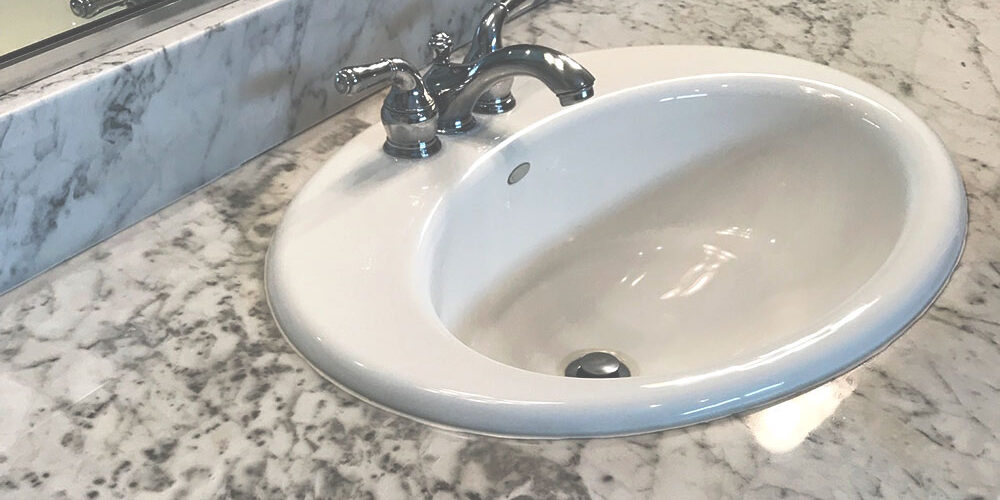
Water Or Solvent Based Sealers For Natural Stone Countertops
Pinnacle Stone Restoration.
Elena Ebanoidze
February 24th, 2018
So you just got your beautiful new stone countertops put in, and they look great! Or, maybe you’re just wanting to prevent your countertops from flaws. Either way, Pinnacle Stone Restoration recommends using a sealer on your stone, no matter the kind. It’s also important to understand the unique aspects of every kind of stone, meaning, no two stones are the same… This is why it’s important to know which sealer is best for you.
Evaluating your needs
Choosing the right sealer for you is almost all consisted of what you’re personally looking for at the end, and also what kind of surface, and where you’re using it. It’s not necessarily that one kind of sealer, (in this case, solvent or water-based) is better then the other, it’s mostly the circumstance it’s being used in, each sealer has its own perks and cons, and it might just be a personal preference that determines the
perfect fit for you.
Solvent Sealers:
Solvent-based sealers are known as more durable, and better for outdoor (and indoor) use. Solvent-based sealers offer deeper penetration and can be cross-linked. As well as share the common easy application with water-based sealers. Solvent-based sealers flash off quickly during application and have a strong odor that lingers after being applied before it can fully disperse. although this application is more complicated, it is still easy to apply. Like mentioned before, personal preference plays a role in choosing a sealer. Whether you want an environmentally friendly and safe sealer is also one of them… Solvent-based sealers are high in VOC (Volatile Organic Compounds), this is a toxin that reacts to form ground-level ozone. Being exposed to this chemical for too long can be dangerous, but these chemicals are common. Although this kind of sealer is convenient in protecting your surface long term, it is known to be more expensive, and need to be chosen wisely, or these effects like gloss can be worn off. Overall, this kind of sealer is good for one’s looking for deep penetration and a lot of protection.
Water Sealers:
Water-based Sealers, (when applied) undergo natural evaporation progress and leave little to no odor. Application is known to be quicker and less complicated than Solvent-based Sealers. These types of sealers are not commonly able to be crosslinked and are non-flammable. This kind of sealer is also best for schools, hospitals, and workplaces because of its Eco-friendliness. Water Sealers have little to no VOC emitted from them, and, again leave no odor, meaning a quick and easy recovery application. As this sealer is slightly more affordable, it also is a more natural and healthy approach to sealing countertops, but of course being less penetrating, only penetrating a deep as water does absorb into the desired surface.
Ideal Properties of Sealer:
When applied carefully and properly, sealers can prevent stains, and protect your surface from any damaging properties. Sealers are used to improve longevity in your stone, making sure it stays in good condition and quality. The importance of choosing the right sealer can affect these benefits.
How Impregnating Sealers work:
Essentially, a sealer is used to fill imperfections in the stone. The porous surfaces absorb substances, creating stains. By filling these pores with the molecules in a sealer, the stains can be avoided. The most important part of choosing a sealer is making sure it goes well with the type of stone you are sealing. Less dense stones, like Marble, Limestone, and Travertine, most likely need a water-based sealer, since they are less dense, they have more to fill. In a water-based sealer, molecules are larger, thus filling larger pores in the stone. On the other hand, stone-like granite might need a solvent sealer. The molecules in this type of sealer are significantly smaller. In stones like granite, (denser) there are smaller pores to fill, meaning the sealer with the smaller molecules are needed. If the sealer to the stone match is not right, it can lead to the surface being hazy and unnatural. By using the right sealer, you can ensure the ideal properties for your stone.
Caring for a sealed stone:
Each sealer has a recommended amount of time before reapplication, this is why you might want to get the most out of your current sealing. Making sure you follow directions for a sealer is obviously key, but it also can mean using the right cleaner with your stone. A natural stone cleaner is best for any sealed surface because it is free of the ruining chemicals in other cleaners. Cleaners with harsh chemicals can wear away your sealer, eventually breaking it down. This is why it’s important to either use the cleaner recommended by the brand of sealer or looking into natural and safe cleaners for your stone. Overall, using a sealer can be a major benefit to making sure your stone can be as healthy as possible if done right. By using the right sealer, and understanding the types, and basic fundamentals of Stone sealers, the health of your stone is guaranteed.



